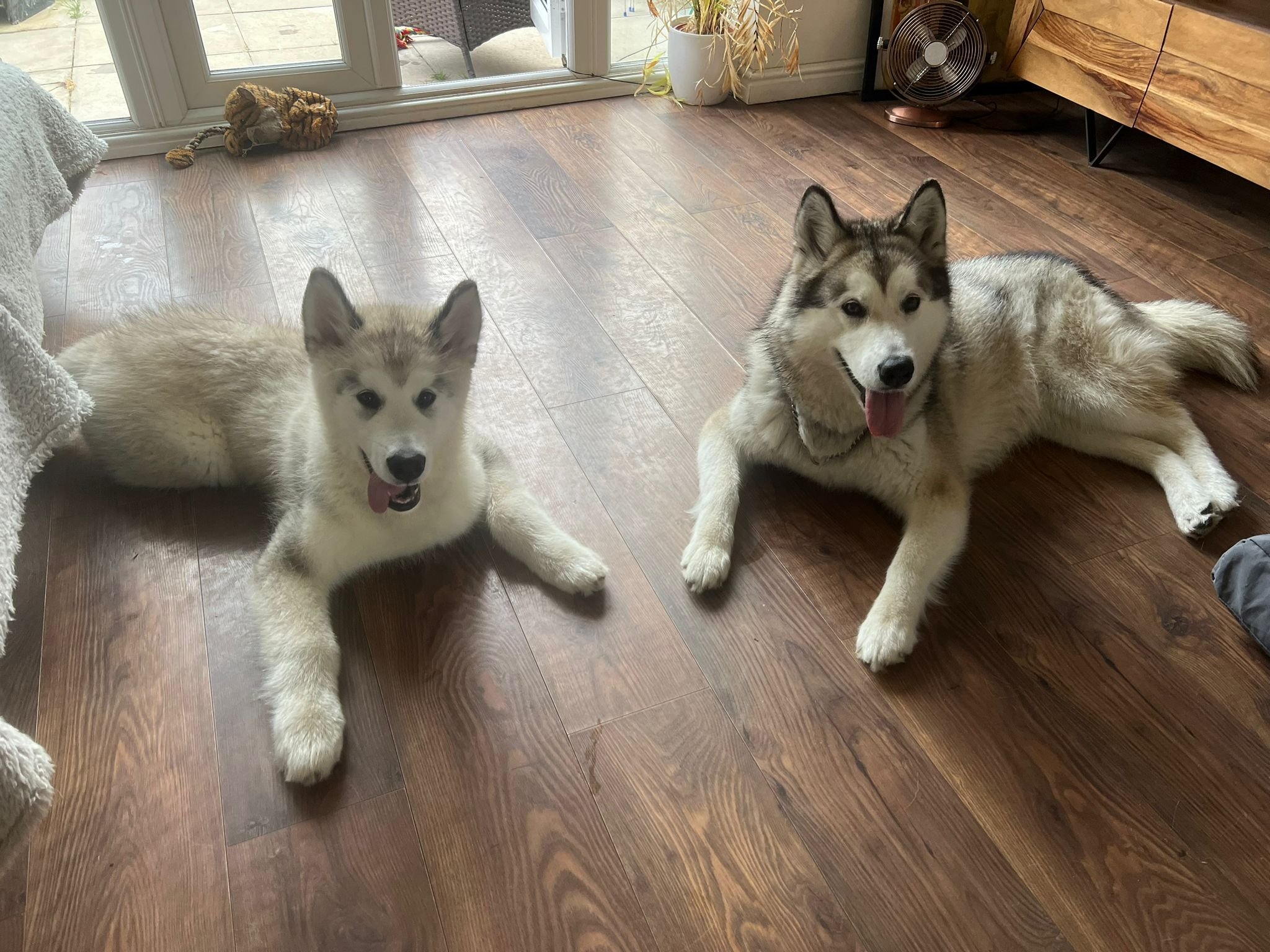Understanding Reactive Dogs: Behaviour is a Symptom of Their Emotional State
If you’re living with a reactive dog, you’re not alone. Reactivity in dogs is a common issue, and it can feel overwhelming to manage those big reactions to other dogs, people, or even specific situations. But here’s the good news: reactivity is not a reflection of a “bad” dog. It’s simply a symptom of your dog’s emotional state, and with the right approach, you can help them feel calmer and more confident in challenging situations.
What Does It Mean to Be Reactive?
Reactivity is when a dog overreacts to certain triggers—whether it's other dogs, people, or specific environments. This behaviour can stem from a variety of emotions, including fear, frustration, or even excitement. When a dog feels overwhelmed, they may bark, lunge, or try to avoid the situation altogether.
It’s important to remember that your dog’s behaviour is just the outward expression of what they’re feeling inside. They’re not being difficult; they’re struggling emotionally. Once we understand that, we can begin to address the root cause—your dog’s emotional state—and not just the behaviours we see.
Using Desensitisation and Counter-Conditioning
To help your dog overcome their reactivity, we focus on two key training techniques: desensitisation and counter-conditioning. These methods work together to change how your dog feels about the triggers that cause their reactions.
Desensitisation involves gradually exposing your dog to the trigger in a controlled and manageable way, so they don’t feel overwhelmed. The goal is to reduce the intensity of their emotional response over time.
Counter-conditioning pairs the presence of the trigger with something your dog loves, such as treats or praise. This helps them form a positive association with the thing they previously reacted to.
By working on these techniques in small, manageable steps, you can help your dog feel less threatened or excited by their triggers and start to build calmer, more neutral responses.
Management: Keeping Your Dog Below Threshold
Training alone isn’t enough, though—managing your dog’s environment is crucial to ensure they aren’t pushed beyond their emotional limit, or what we call their “threshold.” This means setting your dog up for success by avoiding situations that will trigger a full-blown reaction. The goal is to keep them in a zone where they feel safe and can learn, rather than reacting impulsively.
For example, if your dog struggles with reactivity around other dogs, you might avoid crowded parks at peak times or keep more distance between your dog and others until they are ready for closer interactions. Management helps keep your dog calm, while desensitisation and counter-conditioning help them work through their emotional responses at a pace that’s comfortable for them.
Real Success Stories: Ava and Cookie
To show you just how effective these methods can be, let me introduce you to two success stories: Ava and Cookie.
Ava, a beautiful Malamute, was once reactive to other dogs, particularly sighthounds and collies. It was stressful for both her and her owner, but through desensitisation and counter-conditioning, Ava is now neutral to dogs that she used to react to. Her walks have become much calmer and more enjoyable for everyone involved.
Then there’s Cookie, who would bark excessively at other dogs while walking or during agility training. By working with her triggers and using kind, positive methods, Cookie can now walk and participate in agility with minimal fuss. She’s able to focus and enjoy her activities without the stress of reacting to every dog she sees.
How We Can Help
If you’re dealing with a reactive dog, I want you to know that there’s hope. Every dog is different, but with the right support, progress is possible. At Chrysalis K9, we only use reward-based, kind methods that work with your dog’s emotions, not against them. You and your dog will be supported every step of the way, and together, we’ll work towards building a happier, calmer future. We offer 1-2-1 behavioural support throughout the midlands and further afield as we travel to various events - just get in touch to see if we can help you.
If you’re interested in learning more, we’re hosting another Reactive Dog Camp from 14th-17th August next year designed specifically for dogs like yours. It’s an opportunity to dive deep into these techniques with hands-on training and guidance. Keep an eye on my social media pages for more details, or feel free to reach out with any questions.
Remember, your dog’s reactivity is just a symptom of their emotional state, and with patience, management, and the right training, it can be improved. Let’s work together to help your dog feel more comfortable in their world.


